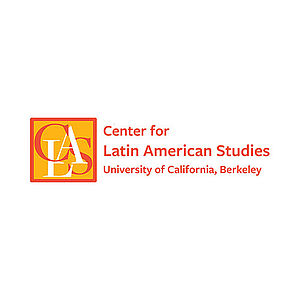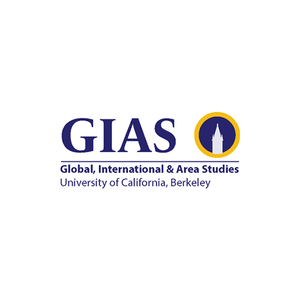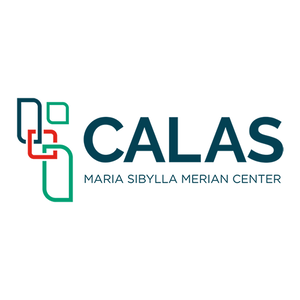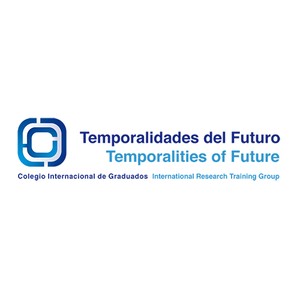Mexico and the United States: Frontierization and Migration Policies
Feb 26, 2021 | 12pm ET
Lecture (virtual) | Speakers: Kateřina Březinová (Metropolitan University Prague) and Luicy Pedroza (El Colegio de México); Moderators: Albert Manke (GHI PRO) and Stefan Rinke (FU Berlin)
The German Historical Institute is pleased to announce the second session of the new virtual lecture series “Mobilities and Migration across the Americas.” The lecture series is co-sponsored by the Institute of European Studies; Global, International & Area Studies; the Center for Latin American Studies (all at UC Berkeley); The Maria Sibylla Merian Center for Advanced Latin American Studies (CALAS); Mecila: Maria Sibylla Merian Centre Conviviality-Inequality in Latin America; and the The International Research Training Group (IRTG) "Temporalities of Future."
Featuring lectures by Kateřina Březinová (Metropolitan University Prague) and Luicy Pedroza (El Colegio de México), this is the second event in a four-part lecture series on “Mobilities and Migration across the Americas,” organized by Albert Manke (Pacific Regional Office of the German Historical Institute Washington at the University of California, Berkeley) and Mario Peters (GHI Washington). The series aims at providing a platform for engaging and inspiring interdisciplinary debates by bringing together scholars from Latin America and the Caribbean, Anglo-America, and Europe.
In this session, historian Kateřina Březinová invites us to understand the U.S.-Mexico border and the processes of bordering and border securitization after 2001 as a result of socially constructed phenomena. By drawing from international relations theory, she will provide a brief historical analysis of processes of bordering and differentiation in the late twentieth and early twenty-first century. Shaped by a top-down logic and by long-standing asymmetries between the U.S. and Mexico, she argues that the impact of border policies is mostly felt by border residents and migrants and comes at a significant cost, particularly for the poor and disenfranchised, oftentimes indigenous peoples. Political scientist Luicy Pedroza will address the recent migration policy regime in Mexico beyond border controls, putting it into a wider comparative perspective and considering the changes the current Mexican government attempted to implement during the Trump presidency and their unexpected and, at times, contradictory development to this day. In both presentations, the impact of (trans)national politics on the personal dimension of (trans)migration, deportation, and the violation of human rights continue the discussion from the first session of our lecture series, Migration and Racism in the Americas. For further information, please see the series announcement.
About the Lecture Series
Lectures every last Friday of each month: January 29, 2021 | February 26, 2021 | March 26, 2021 | April 30, 2021 (9am PT / 12pm ET / 6m CET). The lecture series is co-sponsored by the Institute of European Studies; Global, International & Area Studies; the Center for Latin American Studies (all at UC Berkeley); The Maria Sibylla Merian Center for Advanced Latin American Studies (CALAS); Mecila: Maria Sibylla Merian Centre Conviviality-Inequality in Latin America; and the The International Research Training Group (IRTG) "Temporalities of Future."
Over the past decade, the history of mobility in the Americas has sparked growing interest among historians and scholars from neighboring disciplines. While recent developments in international research continue to inform this trend, researchers across the region have been combining local, transregional, and transnational approaches on patterns and actors of mobility in creative ways. Setting the focus on inter-American entanglements and disentanglements, connections and ruptures, this virtual GHI lecture series addresses two major strands: the history of mobility in the sphere of transportation, planning, and infrastructure on the one hand, and the history of human mobility including migration regimes and transnational governance on the other.
In this sense, we will tap into such varied issues as urban public transport, the creation of traffic and diasporic networks and the production, circulation, and conveyance of knowledge. Secondly, we are interested in the social impacts of new infrastructure and means of transportation as well as policies regulating migration, and the significance of mobility for hemispheric relations in the Americas. Thirdly, we deem the perspective of migrants themselves, but also of technical experts and policymakers and the knowledge they convey of key importance toward a deeper understanding of the personal impact large-scale policies and planning might have on people’s livelihoods. Bringing together scholars from Latin America and the Caribbean, Anglo-America, and Europe, this lecture series shall provide a platform for engaging and inspiring interdisciplinary debates.
Organizers: Albert Manke (Pacific Regional Office of the German Historical Institute Washington at the University of Califonia, Berkeley) and Mario Peters (GHI Washington)
Migration and Racism in the Americas: The Case of Migrants in the United States
January 29, 2021
Speaker: Ramón Grosfoguel (University of California, Berkeley); Comment: Julia Roth (Bielefeld University)
Mexico and the United States: Frontierization and Migration Policies
February 26, 2021
Speakers: Kateřina Březinová (Metropolitan University Prague) and Luicy Pedroza (El Colegio de México)
Public Transport in the Americas: Mobility and Transatlantic Scientific Exchanges March 26, 2021
Speakers: Andra B. Chastain (Washington State University Vancouver); Dhan Zunino Singh (National University of Quilmes)
Flying Down to Rio: Aviation, National Identities, and Hemispheric Relations in the AmericasApril 30, 2021
Speakers: Melina Piglia (National University of Mar del Plata); Leonie Schuster (Kiel University); Peter Soland (Southeast Missouri State University)





